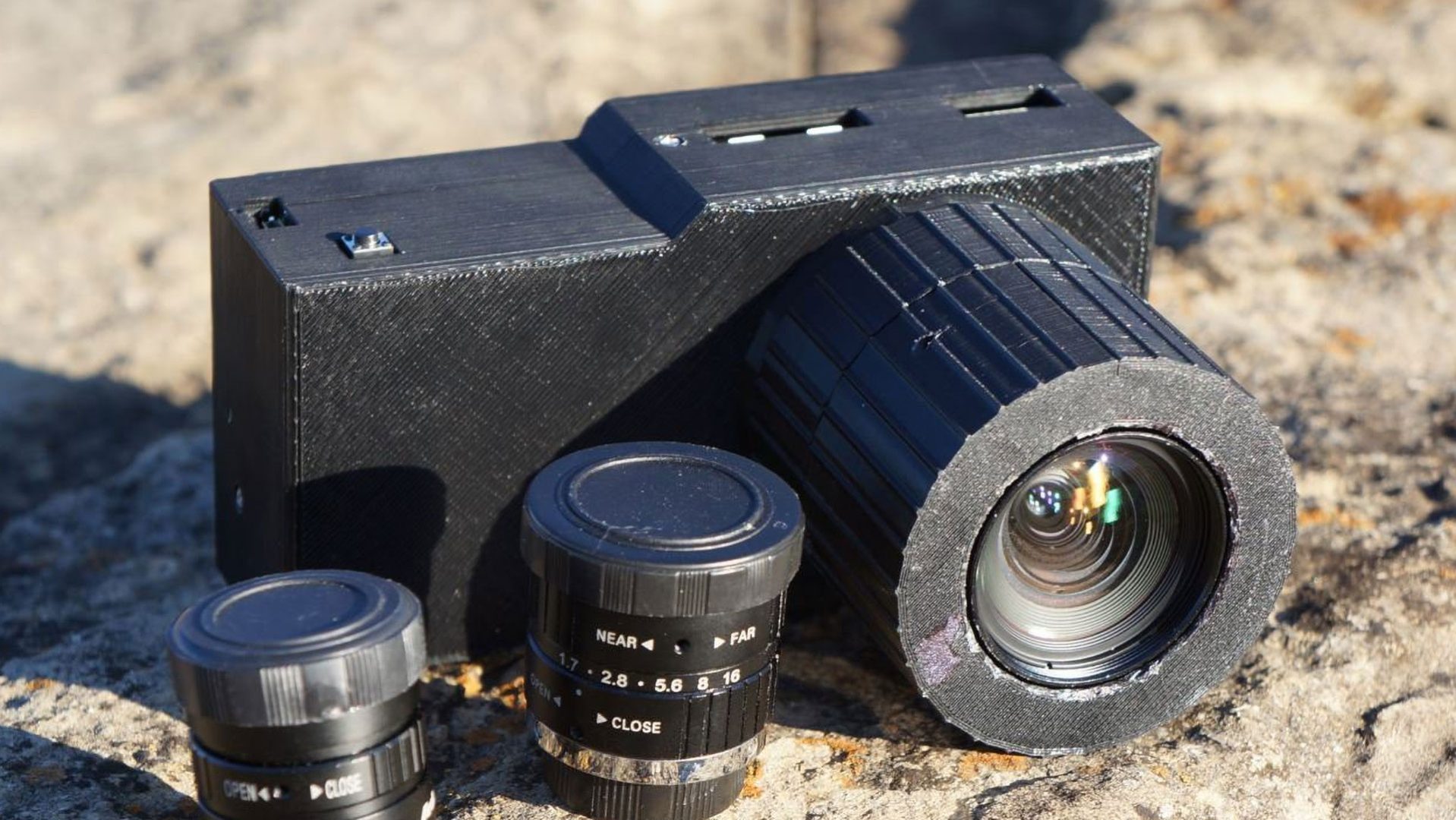


Ever since Raspberry Pi released the Raspberry Pi High Quality Camera Module (buy here), we’ve seen a flurry of 3D-printed cameras based on it. It’s been quite interesting to see, as most of them have come from people who don’t design cameras for a living.
The differences in design approach have definitely been an intriguing aspect of them all. This one is from Jacob David C Cunningham, who’s been posting its development online. And naturally, it has an interchangeable lens mount.
The Design Process
Jacob has posted a number of videos detailing the camera’s development to his YouTube channel. The video above explains the design using SketchUp – a common application for simple CAD design. The design considerations hobbyists make (or sometimes ignore) vs manufacturers like Nikon, Canon, Sony, etc., are very interesting to see.
The camera is based around the Raspberry Pi Zero 2 W (buy here) and the High Quality Camera Module. It utilises C/CS-Mount lenses. These are typically only manufactured for CCTV use these days, but there are some good bargains to be had and some interesting older lenses, too.


The Raspberry Pi Zero product line represents the company’s smallest boards that still run a full blown Linux operating system. They’re not as capable as the Raspberry Pi 4 (buy here), but they’re more than enough for use cases such as this.
Align your imaging expectations
You’re not going to get mirrorless or DSLR-like quality out of it, for sure. It’ll probably have some level of noticeable depth of field but with the overall aesthetic of an early 2010s smartphone camera. Still, that doesn’t sound offputting. It’s an interesting look.
There is no mechanical shutter, obviously. The Raspberry Pi High Quality Camera Module uses an electronic shutter, just like your smartphone. As such, you might notice some rolling shutter artifacts in certain conditions.
Images are saved to the internal microSD card. So you can either pull the images off the card using your computer or you can go a little more advanced. Because it’s based on the Raspberry Pi Zero 2 W, it has built-in WiFi. It also runs a complete Linux operating system. So, you could just have it automatically sync your images up to your main computer or an online cloud service automatically, whenever it gets Internet access.
Download and make your own
Jacob has made his files available to download on GitHub. The files include all of the 3D printable models in STL and SketchUp formats. All of the software and scripts for the Pi are also available to download there.
You’ll also find a complete list of all the hardware required. This includes the OLED, the Pi Zero itself, the camera module, etc. In total, Jacob estimates the camera’s cost to be around $185 using a 35mm lens. Further information on the build process has been posted on Hackaday.
[via hackster.io]








